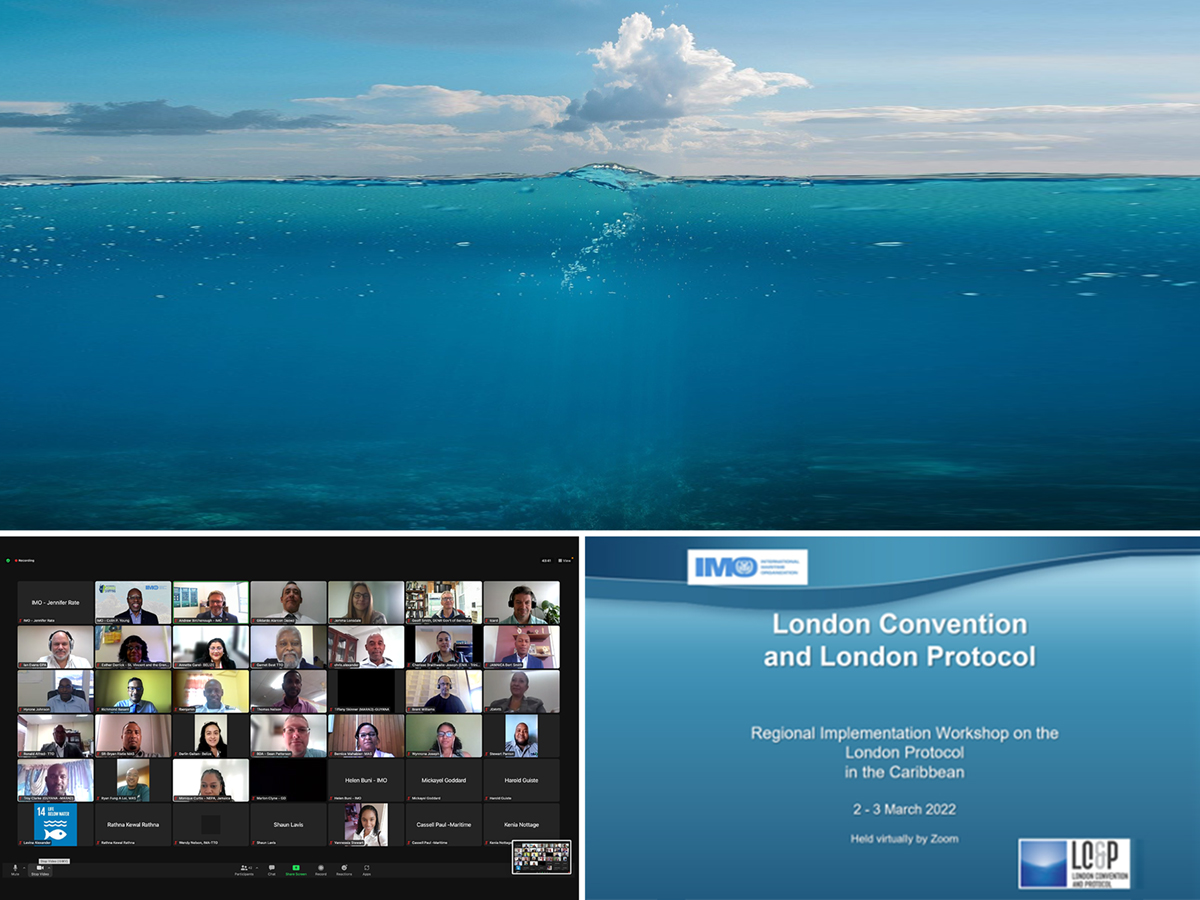Senior officials from 14 Caribbean countries and dependent territories have discussed the need and benefits of ratifying and implementing the London Protocol (LP), which covers dumping at sea, at an online IMO regional workshop (2-3 March).
The workshop, which focused on small island developing States (SIDS) from the region, provided an opportunity to trial a virtual LP workshop training package that was developed by the United Kingdom (The Centre for Environment, Fisheries and Aquaculture Science (Cefas)). Through a series of presentations and discussions participants were informed how under the LP, dumping at sea is generally prohibited, apart from eight wastes that may be considered for dumping but only following a stringent assessment and licensing process. The need for development for a national system for assessment, permitting, monitoring and enforcement of disposal at sea activities was highlighted. Participants also discussed barriers to ratification and implementation of the treaty, and identified next steps and opportunities for future cooperation.
Over 50 officials from environmental and maritime agencies and authorities attended the workshop that was facilitated by IMO, with in-kind support provided by Governments of Mexico and the United Kingdom, through the provision of technical experts.
The workshop was delivered through IMO's Integrated Technical Cooperation Programme (ITCP). It comes as part of IMO's continuous efforts to support UN Sustainable Development Goal 14 (life below water), with a view to creating awareness and dialogue around specific ocean governance issues. These capacity-building initiatives continue, through virtual training.
